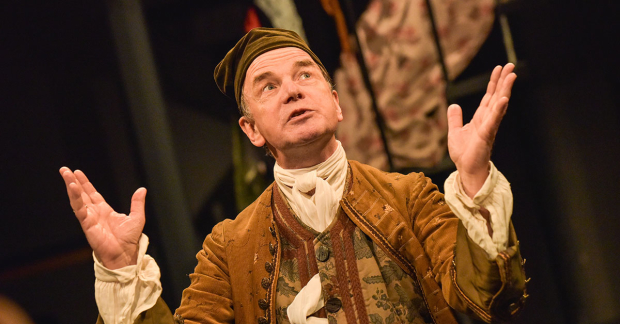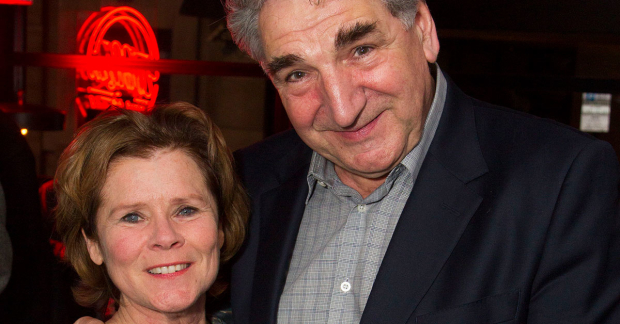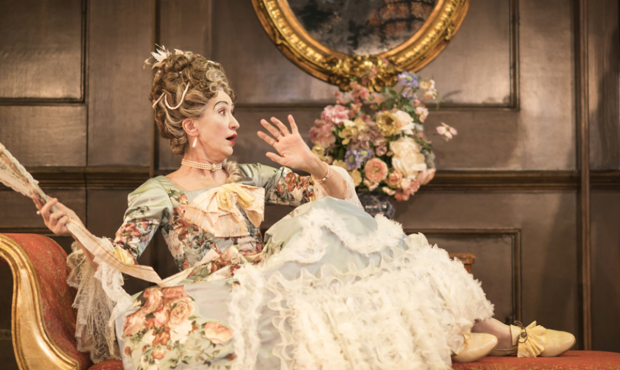Review: The Double Dealer (Orange Tree Theatre)

© Robert Day
Selina Cadell is clearly a fan of Restoration comedy. She acted in The Rivals and her CV as a director contains three accomplished examples of the genre. She puts her whole heart and soul into trying to make this revival of Congreve's The Double Dealer come to life. But I just couldn't see why she should want to try.
Congreve's third play is a pretty feeble affair. First produced in 1693 and infinitely less sophisticated than his more famous Love for Love or The Way of the World, there's not much point trying to explain the plot. It centres on a pair of lovers, Cynthia and Mellefont, who are trying to get married while around them lots of characters with symbolic names – Plyant, Froth, SayGrace and Maskwell – intrigue and connive and generally behave very badly while trying to stop them. For no reason I could readily discern.
But then as Cadell says in a specially written prologue, "the plot's not the thing". Which begs the question, what is? If we are not to follow the narrative (and I defy anyone to write a clear account of what actually happens in the end) or to care about the characters (who are stock types such as the foolish husband, the blaggard, the wit, and the coquette), then why are we watching the play in the first place?
Cadell's directorial answer is to turn the entire production into an alternative Christmas pantomime, all big gestures, slapstick and knowing asides to the audience. This puts a great strain on a hard-working cast; on a bare stage, they are asked constantly both to be inside the scene and to chat to us at the same time.
Intermittently, it works. There is fun to be had in broad comic playing, where women professing virtue chase half-undressed men round the place. But it also undermines any proper purpose in the drama. There's no sexiness, no proper jeopardy. It is very hard to engage when everyone seems so unengaged themselves.
Edward MacLiam's Maskwell is particularly undermined. He is the double dealer of the title, the man whose machinations contradict all notions of friendship and honesty. But in being required to fling himself about the space, charm the audience, and even move the one piece of furniture, he becomes a grotesque caricature, his impact dissipated.
Things are further confused (and heaven help us, they are confusing enough) by the inexplicable decision to cast Zoe Waites as both the innocent heroine and her fiancé's revengeful, lecherous aunt Lady Touchwood. Since the characters are not related, it serves no purpose other than to demonstrate Waites' versatility, but it also has a tendency to send her over the top.
The performances I liked best were the simplest. As Lady Froth, a woman touchingly and mistakenly sure of her own brilliance, Hannah Stokely reveals a precise grasp of the art of letting Congreve's language do most of the heavy lifting; Jonathan Coy is similarly confident as the betrayed Lord Touchwood and Lloyd Everitt lends just the right amount of touching openness to Mellefont, which almost makes you forgive how stupidly he behaves. Cadell is a good director. I'd like to see her emerge from the 17th century soon.

















